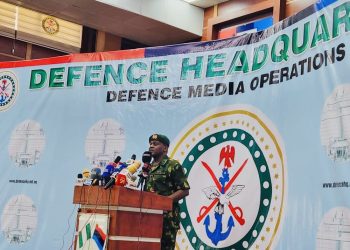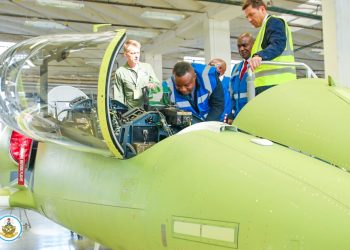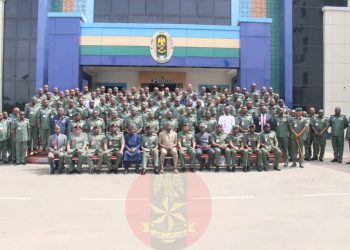…as NSA reaffirms Nigeria’s commitment to regional cooperation
By Nkechi Eze
The National Security Adviser, Mallam Nuhu Ribadu, has reiterated Nigeria’s unwavering commitment to regional cooperation in the fight against the growing threat of Improvised Explosive Devices (IEDs) in West Africa.
Speaking through the Permanent Secretary, Special Services Office, Office of the Secretary to the Government of the Federation, Mohammed Sanusi Danjuma, Ribadu delivered the message at the opening of the Global Counterterrorism Forum (GCTF) West Africa Capacity Building Working Group workshop, held at the National Counterterrorism Centre (NCTC) in Abuja.

Ribadu emphasized the importance of multilateral collaboration, knowledge sharing, and joint strategic planning in addressing the evolving threat of IEDs used by terrorist groups. “This regional meeting serves as a platform for us to share knowledge, best practices, and develop practical solutions to counter the use of IEDs,” Danjuma stated on his behalf.
He commended the collaborative efforts of the GCTF Working Group, International Institute of Justice (IIJ), and the United Nations Office on Drugs and Crime (UNODC) in convening the high-level workshop and called on participants—including representatives from West African countries, GCTF member states, and other stakeholders—to actively engage in the discussions.
Ribadu expressed optimism that the outcomes of the forum would enhance national and regional capabilities and contribute to securing communities affected by terrorism.
Also, representing the Federal Republic of Germany, Mr. Matthias Dold, Political Affairs Officer at the German Embassy in Abuja, reaffirmed Germany’s commitment to collaborative regional security initiatives. He delivered his remarks on behalf of the German Ambassador to Nigeria, Her Excellency Annette Günther.

In his remarks, Dold highlighted the increasing threats across the Sahel and Lake Chad regions, noting that “in 2024, the Sahel was the most affected region in the world in terms of terrorism-related deaths.” He expressed concern over the use of weaponized commercial drones by terrorist groups, which he described as “a troubling development” that threatens hard-won regional stability.
He also referenced the Lomé Recommendations, a strategic document developed from past GCTF engagements as a practical tool to guide responses to the IED threat. Germany, he said, continues to support both military and non-military solutions through bilateral and European Union initiatives such as the Integrated Border Stability Mechanism for West Africa and the Regional Stabilization Facility in the Lake Chad Basin.
In similar vein, Ambassador Ousseni Mouissi Roy, Algeria’s envoy to Nigeria and ECOWAS, while addressing the gathering, reaffirmed Algeria’s solidarity with West African nations in the fight against terrorism. He praised Nigeria for hosting the meeting and commended stakeholders for their continued commitment.
Ambassador Roy emphasized that IEDs remain one of the most devastating tools in the arsenal of terrorist groups across the Sahel. He stressed the need for a comprehensive approach—one that includes security operations, disruption of supply chains, technological monitoring, and socio-economic interventions.
Referencing the 2014 UN report on IEDs and Algeria’s leadership of a UN Security Council debate on terrorism in Africa in 2024, the ambassador urged for the adoption of regional and sub-regional strategies that reflect local realities. He also cited regional efforts such as the 2021 African Seminar in Algeria and the 2024 Conference in Ghana as critical milestones in the fight against the IED threat.
Ambassador Roy concluded with a pledge of continued support: “Inspired by Algeria’s national experience and guided by a spirit of African unity, we will always stand with West African countries in their struggle against this shared threat.”
The workshop, which drew participants from across West Africa and partner nations, serves as a platform for exchanging strategies, discussing best practices, and refining policy recommendations. Organizers expressed confidence that the outcomes will significantly contribute to counter-IED efforts and foster long-term peace and stability in the region.















